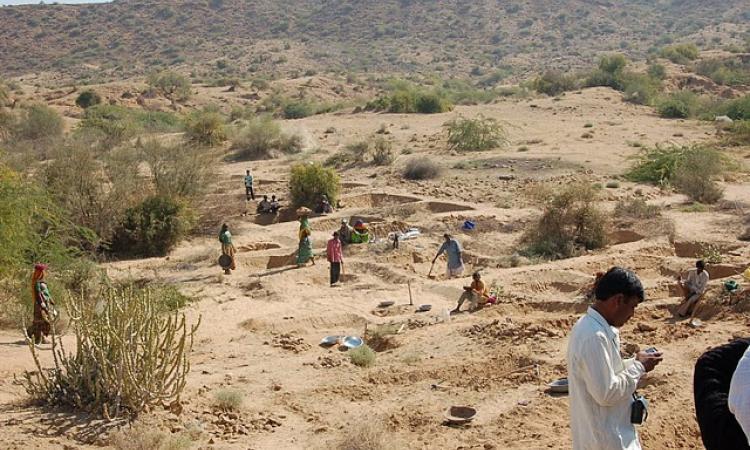
50% of MGNREGS work should be for improving water conservation: Government
In the wake of drought-like conditions in the country, the Rural Development Minister has ordered the states to undertake 50% of work under the Mahatma Gandhi National Rural Employment Guarantee Scheme (MGNREGS) towards water conservation. This work includes the construction of check dams and the de-silting of traditional water bodies, minor irrigation tanks and canals. Also, the proportion of skilled labour has been increased from 40% to 49%.
Government appoints panel to review environmental laws
The government has constituted a high-level committee of four members to review environmental laws and bring them in line with current requirements. The move has been taken to streamline the environment clearance process. The panel will review the important laws enacted between 1971 and 1986, which includes the Environment (Protection) Act, 1986, Forest (Conservation) Act, 1980, Wildlife (Protection) Act, 1972, the Water (Prevention and Control of Pollution) Act, 1974 and The Air (Prevention and Control of Pollution) Act, 1981.
SC orders the Centre to prepare a time-bound action plan for Ganga rejuvenation
The Supreme Court has reprimanded the Centre for its action plan on Ganga rejuvenation. The Court has even commented that the 'Centre's action plan may not help clean the Ganga even after 200 years'. The Centre has been directed to submit a stage-wise plan for the Ganga clean up in a Power Point format within three weeks. Along with this, the Centre needs to submit a plan for ecologically sensitive areas within the Ganga stretch from Gangotri till 135 km downstream.
Government seeks protection of coal mines, eases coal mine expansion norms
Government seeks exemption for 46 coal mines from losing their license, following the Supreme Court judgement that has termed 218 coal blocks in the country as illegal. This was done to boost coal output in order to combat the looming power crisis in the nation. For the same reason, the Environment Ministry has also decided to grant a one-time exemption to public hearings for expanding coal mines and has also allowed mining in the critically polluted cluster of Chandrapur, Maharashtra.
India will soon have a Deep Seabed Mining Act
The Union Ministry of Earth Sciences has appointed the Gujarat National Law University for laying down the guidelines for deep sea mining in the Indian Ocean and the Antarctic Ocean. The two draft laws will be termed as the 'Deep Seabed Mining Act' and 'Antarctica Act of India', respectively. The Act will help India live upto its international commitment of protecting ecosystems of Antarctica.
This is a weekly roundup of policy matters from September 1-8, 2014. Also read last week's news roundup.